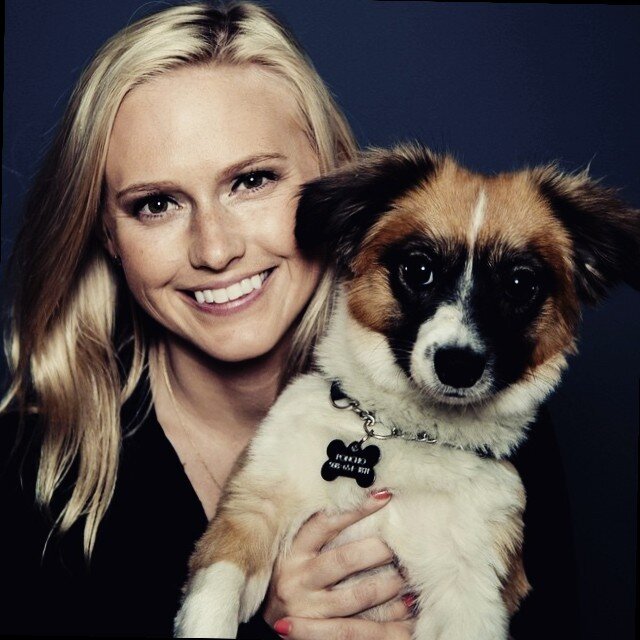I sat down with a bunch of product managers for a conversation
And the questions I received were fascinating.

 The other day I was invited to an informal product meetup as an informal speaker. My fiancé (yes, we got engaged!) is a product manager in Berlin, and he meets about once a month with a group of about ten other product managers. They swap stories and experiences, discuss tools, and seek advice from one another on all things product management. I, personally, imagined meetings filled with JIRA talk and phrases like, “it depends…”
The other day I was invited to an informal product meetup as an informal speaker. My fiancé (yes, we got engaged!) is a product manager in Berlin, and he meets about once a month with a group of about ten other product managers. They swap stories and experiences, discuss tools, and seek advice from one another on all things product management. I, personally, imagined meetings filled with JIRA talk and phrases like, “it depends…”
A few weeks ago he asked me if I would like to come in and talk with the group about user research. He asked me if I’d be willing to answer as many questions as possible and be an open book about user research during those two hours. I said yes, but I was a bit apprehensive. A group of ten product managers and one user researcher.
I was mostly nervous that I would be unable to answer their questions well and that I would give them the impression that user research was not valuable. Imposter syndrome crept in on the day of, but I swatted it away. As researchers, we can struggle so much with defending and explaining our craft. I didn’t want to leave a bad impression or mistakenly convince people that user research is unnecessary.
We arrived at the apartment. Cheese and wine were served as everyone settled into their seats. Soon, heads turned to me. Someone asked me if I prepared anything (spoiler: I hadn’t). I explained that I wanted this to be an open forum for them to ask any questions they wanted to and I would do my best to answer.
It was over two and a half hours later that we noticed the time.
What questions did I get?
I had quite a lot of questions from the product managers:
- When do I reach out for help on user research?
- When should I hire a user researcher?
- What should I look for when hiring a user researcher?
- How do I pitch hiring a user researcher to the company?
- What should I expect from a user researcher?
- How should I work with a user researcher?
- Should a user researcher know how to do both qualitative and quantitative data?
- How should I get started with some user research (if I don’t have a researcher our the team)?
- How should I pitch the value of user research to a company/organization?
- What questions should I ask a user researcher?
What surprised me?
There is bad user research conducted out there. Just like in any profession, it can go wrong, and this can leave a bad taste in people’s mouths. A few product managers brought up some difficult times they experienced with researchers. I am sure you can think of some tough situations with product managers as well.
Things can go wrong in all professions and you can have less than ideal interactions with anyone. However, user research is still relatively new as a profession and a role. We have had to push for user research to be done, constantly pitch the value of user research, and defend the validity/reliability.
Based on these experiences, product managers were curious about what user researchers could do that they couldn’t. When they’ve seen user research done badly, they think, what is the point of a user researcher?
Other topics that surprised me:
- Product managers want to work with us.
- Product managers don’t necessarily know how to approach us. They deal a lot more with business problems versus customer problems. As researchers, we need to help our stakeholders translate the business into customer-centric thoughts
- We don’t have enough open communication with product managers. We can’t take these questions too personally. If product managers don’t see the value in user research, it is much more helpful they are honest and ask us, rather than just thinking this to themselves. If we are willing to hear the hard questions and give meaningful answers, we can educate in a positive way
- We have a lot more in common than we think. Product managers and user researchers want the business to succeed — we both want to solve problems and create a positive impact. If we work together better, we can do this much more effectively and efficiently.
What is next?
I left the meeting buzzing, despite drinking water all night and abstaining from the wine (I wanted my mind to be sharp). I wondered to myself, why don’t we have these open and honest communications more often?
We constantly work with product managers, among many other stakeholders, all the time, but we don’t seem to have much open communication. My biggest takeaway is this:
Speak with product managers as if they were your users, stakeholders, and peers. Be open to their questions (even if they hurt), and be honest and kind with your responses. Educate and learn. Together, we can truly work so well.
Here are some additional action items I will take away from this:
- Meet more often with product managers — I am going to try to get back into the group as a follow-up but, aside from that, I will start attending product management conferences, webinars, and meetups to better understand them
- Take these questions and write down answers for my stakeholders, so they can easily reference them. For example, the “when should I reach out” question can be answered in a Google Slides presentation that stakeholders can later reference!
- Writing an article about user research geared toward product managers that answers these questions, and has additional tips
Take some time to sit down and chat with your product managers. Let them as you the hard questions and give you feedback. We can continue to educate each other and work as a team.

